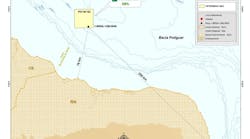There are right ways to make environmental policy. There are wrong ways. And there are irresponsible ways.
The right ways to make environmental policy are to recognize and properly assess problems and to apply scientifically valid solutions consistent with other priorities, such as economic growth and national security. The wrong ways are to employ this framework but to err in technicalities.
Environmental policymaking lapses from error to irresponsibility when it leads with retribution or blind prohibition. Two examples will be on the agenda when Congress returns to work Jan. 23.
RISKS AND FELONIES
Retribution is the focus of the Environmental Crimes Act proposed by Reps. Charles Schumer (D-N.Y.) and George Gekas (R-Pa.). The bill would raise to felony status any criminal offense under federal environmental statutes if the misbehavior "knowingly" created the risk of environmental catastrophe. In other words, an action that simply raised risks could be construed a crime punishable by long prison terms and heavy fines.
Under such a law, environmental risk strategies would shift from management to avoidance. Instead of developing safer and cleaner technologies and practices, many companies would simply curtail operations or move. This might appeal to a few antidevelopment extremists, but it would contravene U.S. economic imperatives and stall meaningful environmental progress.
So would the proposal that leads with blind prohibition, a bill filed by Rep. Barbara Boxer (D-Calif.) and others to create "drill free" zones in federal waters outside Gulf of Mexico producing areas. Banning economic activity can seem to eliminate environmental risk if tradeoffs are ignored. But the price is unrealistically high. Drilling prohibitions accelerate the country's already alarming increase in oil import dependency, which aggravates the trade deficit. And by raising imports, they replace environmentally low risk drilling with high risk tanker traffic. Where's the environmental benefit in that?
Both bills play to a popular environmental uproar that, if untempered, will keep the country from ever making policy the right way. Pressures remain, for example, for an immediate, broad, and hugely expensive program to combat global warming, even though a growing body of evidence indicates the phenomenon represents less threat than earlier alleged and may not even exist. The issue has devolved into a forced choice between impractical and possibly unnecessary remedies the nation can't afford and no response at all.
This all-or-nothing approach does nothing for the environment-or worse. Elected officials should be leading the nation away from uproar toward informed concern, upon which it can construct genuine solutions to real problems. Instead, too many politicians are promoting the simplistic good guy/bad guy environmental routine that fits television formats-and, therefore, political careers-so well.
SAD PARADOX
A sad paradox results. The U.S. faces complex environmental challenges. It also possesses matchless capacity to solve problems with technology. Yet its lawmakers can do no better than flail at make-believe threats with oppressive criminal penalties and activity bans.
Solutions to environmental problems exist somewhere above the popular uproar. U.S. leadership must rise to that level. Clean air and water mean little to a country with its official head stuck neck-deep in political sand.
Copyright 1990 Oil & Gas Journal. All Rights Reserved.

